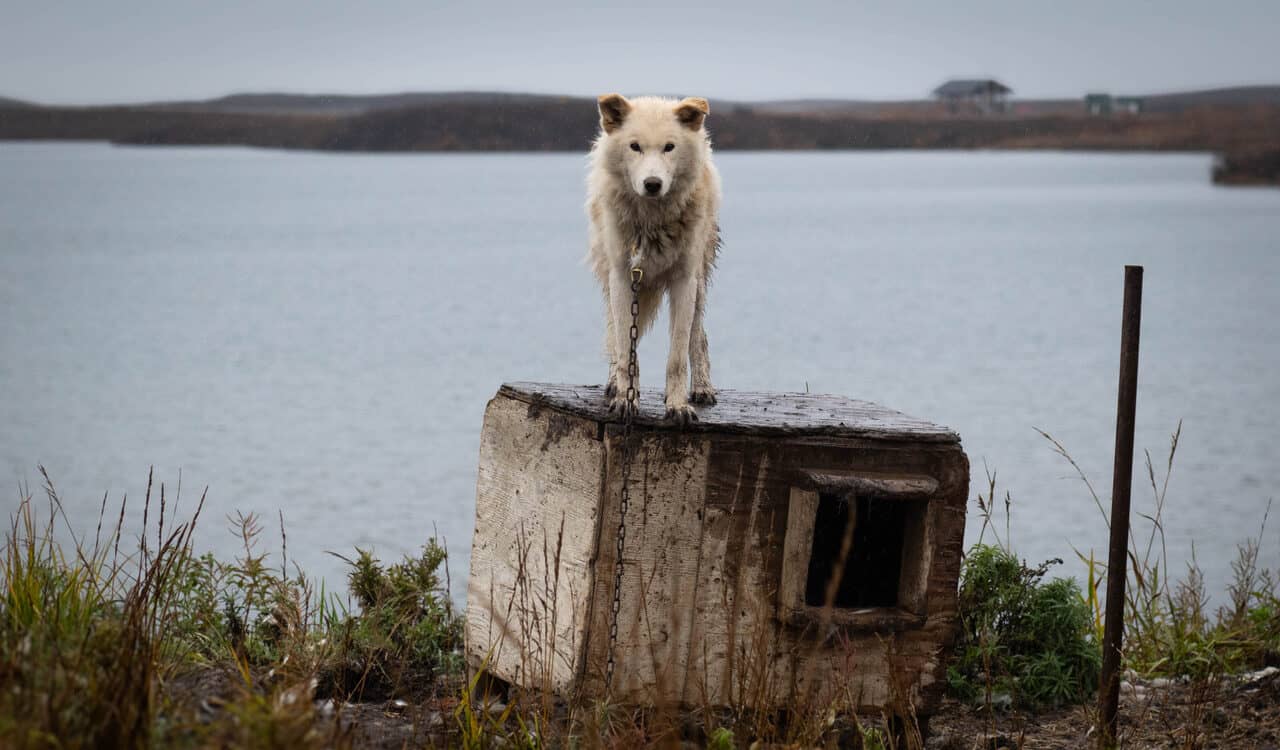
By Meghan Power
This project was born out of a piece that Monica wrote for the Toronto Star in 2022 about cemetery erosion: “I had been hearing about coastal communities in Newfoundland, where I lived for many years, having to deal with the very real problem of human remains becoming unearthed and of course the emotional distress that can bring for the people who happen to find them.” As Monica was on her way to interview someone in a community dealing with just this problem, she came across a human skull. “That was a graphic entry to the story. It also made me realize that sea level rise and erosion is not just about the present and future, but also about the past. In some cases it means erasure of people’s generational history.”
In 2024, Monica received a project grant from Calgary Arts Development (CADA) that would allow her to travel to the remote village of Tuktoyaktuk, Northwest Territories where she could interview members of the community who are being directly impacted by coastal erosion. On her way she stopped in Yellowknife to interview Canada’s only climate change archaeologist about his work mapping eroding material, Inuvialuit heritage and to learn more about the way he engages with the community about how to treat research material.
The grant allowed her to write a chapter of her upcoming book, and a personal essay; she’s also at work on a feature for The Walrus. She’ll also present some of her work at the Association for the Study of Literature and Environment conference this summer in Galway, Ireland. “Because of my visit to Tuktoyaktuk,” she says, “I feel an extra sense of responsibility to my sources to tell this story with compassion and accuracy.”
“This type of funding is essential,” she continues. “Writers don’t often have the money to do extended research, especially research that requires travel to remote locations. So being able to dive deep into research and to be able to engage with these communities, and with scientists first-hand is huge. This particular trip had other spinoffs, too. I was able to hire local video journalist Karli Zschogner to help me in Tuktoyaktuk, and through her connections with the Inuvialuit Communications Society, copies of some of my interviews will be kept by people in the community to be archived for Indigenous Knowledge and to support oral storytelling initiatives.”
This will be Monica’s ninth book. She has been reporting on science-related topics off and on since the ’90s, and is a trained ecologist, a practicing medical doctor, and a poet. “This book is an opportunity for me to bring together two of my passions—science and art—in an urgent moment. Things can feel like they’re moving so fast; I believe art can offer us an opportunity to stand still and maybe help us to make sense of the changes that are happening all around us. It’s reassuring that CADA is supporting projects like mine that are telling stories of climate change happening right now.”